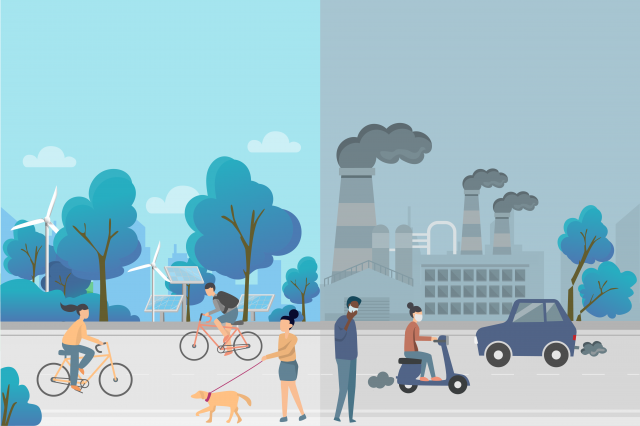Why Air Quality Science Matters this Week… and Every Week

Published May 4, 2021
Everyone benefits from clean air. That is why Air Quality Awareness Week at EPA is a time when everyone can learn a little more about the science that helps the Agency protect the nation’s air quality.
The air we breathe today is considerably cleaner than when EPA first began implementing the National Ambient Air Quality Standards (NAAQS) under the Clean Air Act in the early 1970s. The standards require states to meet air quality levels for six common air pollutants and are based on scientific evidence produced by EPA scientists and other researchers across the nation. Researchers also conduct science to support EPA policy decisions on rules for other toxic air pollutants, or air toxics, that are emitted by industry and other sources.
While air quality has improved across the United States, millions still live in communities where air pollution exceeds the EPA’s standards that protect public health. The residents of these communities often bear a disproportionate share of the environmental and health impacts of emissions from industry, oil and gas operations, nearby highways, railroads or ports and other sources of air pollution.
EPA researchers are focused on understanding the air quality concerns in these communities and the health impacts of the residents. They are applying scientific knowledge and tools to assist states, tribes and communities to address equity issues, so that all people can breathe clean air and enjoy improved quality of life.
EPA science is at the forefront of developing innovative scientific solutions for current air quality problems and emerging air pollution issues, including wildfires and climate change. Learn about the research under way by visiting the newly updated Air Research web page .
- Discover what researchers are doing to understand the health effects of wildfire smoke and the impacts of air pollution on vulnerable populations, including women, the elderly and those living in communities with equity concerns.
- Find out about innovative research to advance air sensor technology to help air quality agencies identify hot spots, supplement regulatory monitoring, and assist community scientists interested in learning more about their local air quality. https://www.epa.gov/air-sensor-toolbox.
- Learn how new ways to measure, monitor and model air quality are assisting state, local and tribal agencies make decisions to reduce air pollution.
- And see what scientists are doing to provide the tools and information to help make sustainable energy decisions that balance environmental, economic, and societal objectives.
- Access resources including the Science Inventory, a repository of journal articles and reports, and a science tools finder, called SMaRT Search.
You can also sign up for EPA’s new Air, Climate and Energy Webinar series to hear about the latest research and results.
Want to stay informed? Sign up for periodic announcements by email at the following web pages:
- Get Air Research News by Email (Go to Recent Updates and click “Sign Up.”
- Get Air Sensor Toolbox News by Email (Go to Announcements.)
- Get Climate Research News by Email (Go to Recent Updates.)
- Get Wildfire Research News by Email (Go to Recent Updates.)
Celebrate Air Quality Awareness Week by learning more about air quality and what EPA science is doing to protect the air you breathe.
Learn More:
